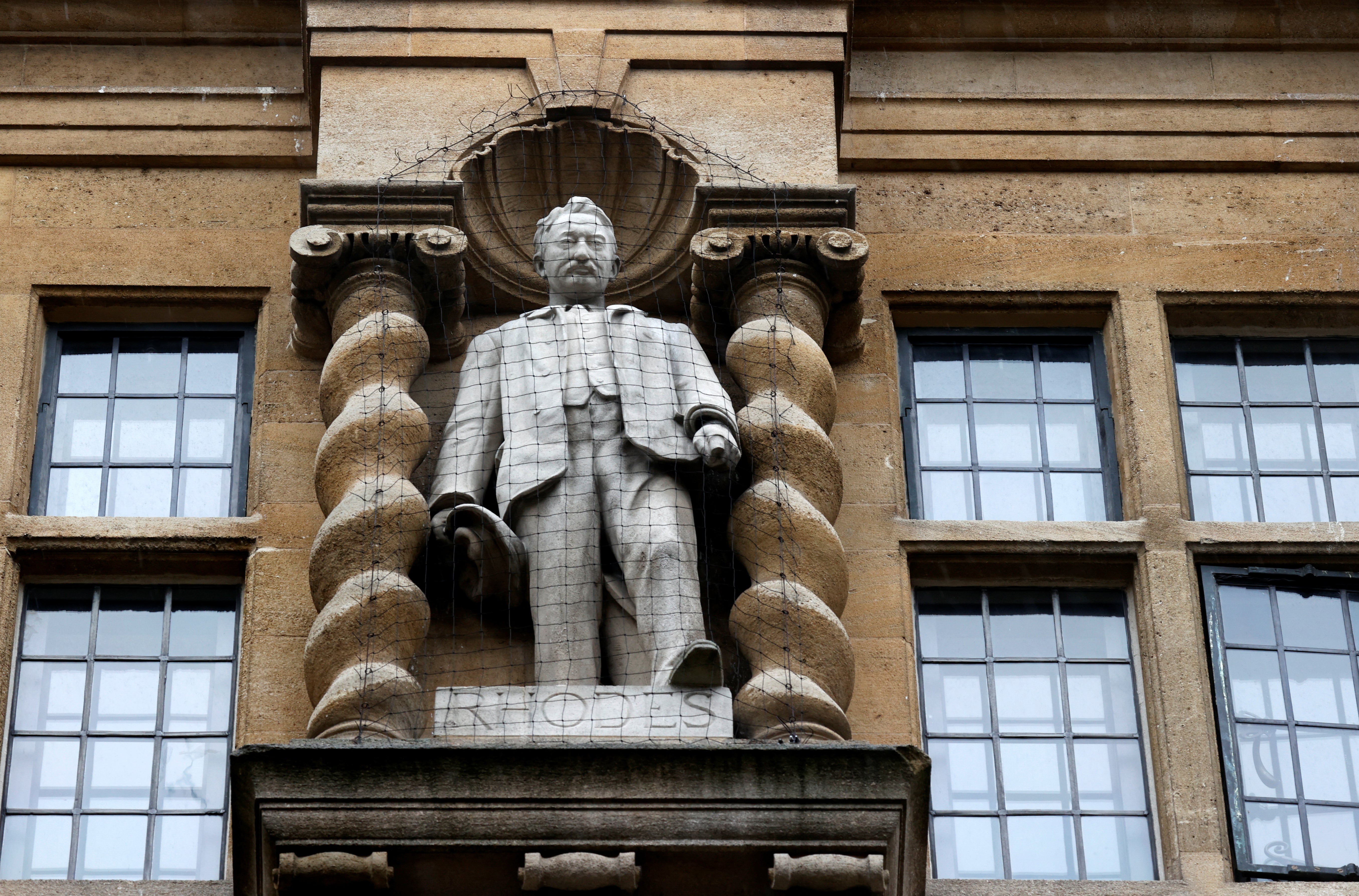Cecil Rhodes statue at the University of Oxford will not be removed, college says
The removal would be particularly challenging due to government policy, college says

Your support helps us to tell the story
From reproductive rights to climate change to Big Tech, The Independent is on the ground when the story is developing. Whether it's investigating the financials of Elon Musk's pro-Trump PAC or producing our latest documentary, 'The A Word', which shines a light on the American women fighting for reproductive rights, we know how important it is to parse out the facts from the messaging.
At such a critical moment in US history, we need reporters on the ground. Your donation allows us to keep sending journalists to speak to both sides of the story.
The Independent is trusted by Americans across the entire political spectrum. And unlike many other quality news outlets, we choose not to lock Americans out of our reporting and analysis with paywalls. We believe quality journalism should be available to everyone, paid for by those who can afford it.
Your support makes all the difference.A University of Oxford college has said it will not remove its divisive statue of British imperialist Cecil Rhodes, despite an independent commission’s recommendation that it be taken down.
The commission, set up last June following Oriel College’s vote to remove the memorial, advised that it be pulled down along with the King Edward Street plaque after a majority of commission members supported the move.
However, Oriel College has said it will not remove the statue due to costs and “complex” processes regarding heritage and planning consent.
The college said that removing the statue would be particularly challenging “since the government’s policy, in relation to historic statues and sites which have become contested, is to ‘retain and explain’ them”.
The college said in a statement: “The governing body has carefully considered the regulatory and financial challenges, including the expected time frame for removal, which could run into years with no certainty of outcome, together with the total cost of removal.
“In light of the considerable obstacles to removal, Oriel’s governing body has decided not to begin the legal process for relocation of the memorials.”
The college said it had voted to accept “a number of the report’s recommendations immediately”. These include measures such as appointing a tutor for equality, diversity and inclusion, fundraising for scholarships for southern African students, and new initiatives for recruiting students from black and minority ethnic backgrounds.
The commission, chaired by Carole Souter CBE, undertook a ten-month long inquiry into the Rhodes legacy, as well as more than a thousand written contributions from students, alumni, associates of the college and the general public. Most of the submissions to the commission “backed the retention of the statue”, the college said.
The college has also pledged to contextualise Rhodes’s legacy and the memorials to the imperialist, using both physical elements at the site and online resources.
Lord Mendoza, provost of Oriel College, said: “It has been a careful, finely balanced debate and we are fully aware of the impact our decision is likely to have in the UK and further afield. We understand this nuanced conclusion will be disappointing to some, but we are now focused on the delivery of practical actions aimed at improving outreach and the day-to-day experience of BME students.”
Although student campaigners Rhodes Must Fall Oxford have been calling for the memorial to be removed for years, the commission was asked to review the issue after a statue of the slave trader Edward Colston was toppled in Bristol last June.
The government has since taken a hard line against the movement to take down similar monuments, with culture secretary Oliver Dowden threatening to cut funding to museums that removed statues associated with British colonialism.
Mr Dowden warned institutions in a letter last October that they “should not be taking actions motivated by activism or politics”.
Join our commenting forum
Join thought-provoking conversations, follow other Independent readers and see their replies
Comments